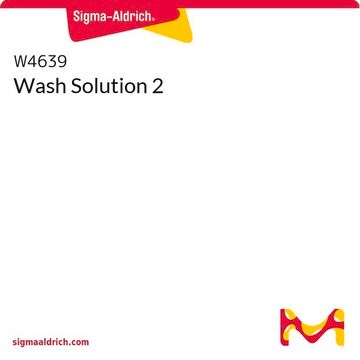PLN350
GenElute™ Plasmid Miniprep Kit
sufficient for 350 purifications
Synonym(s):
GenElute™ Plasmid Kit, plasmid extraction kit, plasmid isolation kit, plasmid purification kit, Gen Elute
About This Item
Recommended Products
usage
sufficient for 350 purifications
Quality Level
greener alternative product characteristics
Designing Safer Chemicals
Learn more about the Principles of Green Chemistry.
sustainability
Greener Alternative Product
technique(s)
DNA purification: suitable
greener alternative category
storage temp.
15-25°C
Looking for similar products? Visit Product Comparison Guide
General description
An overnight recombinant E. coli culture is harvested with centrifugation and subjected to a modified alkaline-SDS lysis procedure followed by adsorption of the DNA onto silica in the presence of high salts. Contaminants are then removed by a spin-wash step. Finally, the bound DNA is eluted in water or Tris-EDTA buffer.
Application
Features and Benefits
- Purified plasmid DNA in less than 30 minutes
- Purify up to 15 μg of plasmid DNA
- No detectable genomic DNA or RNA contamination
- No phenol/chloroform extraction or alcohol precipitation required
Other Notes
Legal Information
related product
Signal Word
Danger
Hazard Statements
Precautionary Statements
Hazard Classifications
Acute Tox. 4 Oral - Eye Irrit. 2 - Flam. Liq. 3 - Met. Corr. 1 - Resp. Sens. 1 - Skin Irrit. 2 - STOT SE 3
Target Organs
Central nervous system
Storage Class Code
3 - Flammable liquids
Choose from one of the most recent versions:
Certificates of Analysis (COA)
Don't see the Right Version?
If you require a particular version, you can look up a specific certificate by the Lot or Batch number.
Already Own This Product?
Find documentation for the products that you have recently purchased in the Document Library.
Customers Also Viewed
Our team of scientists has experience in all areas of research including Life Science, Material Science, Chemical Synthesis, Chromatography, Analytical and many others.
Contact Technical Service












